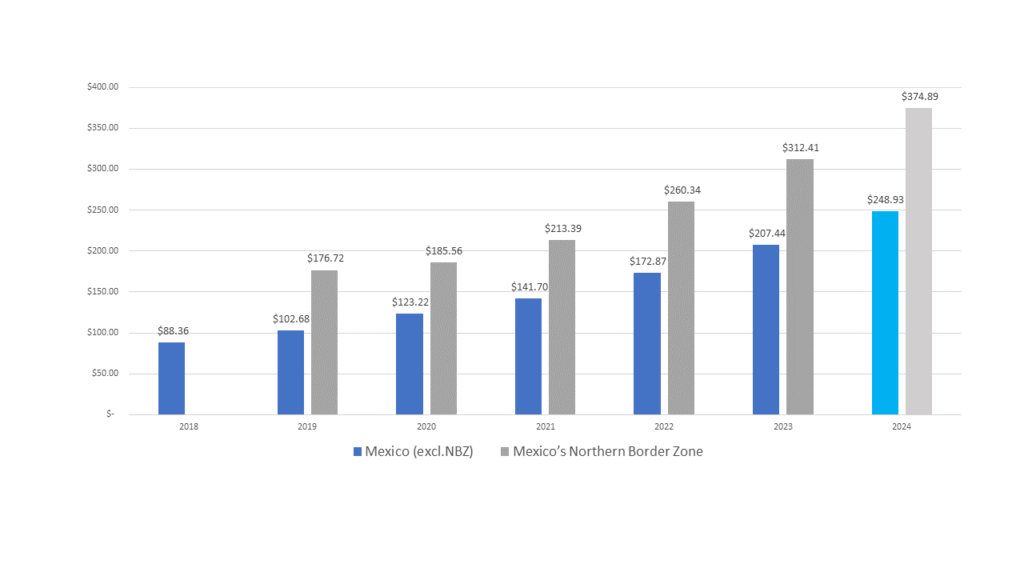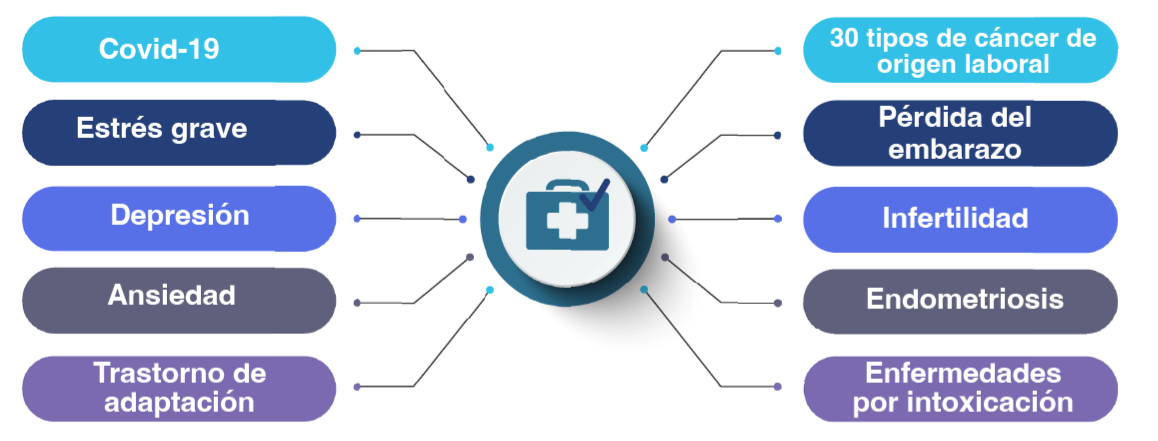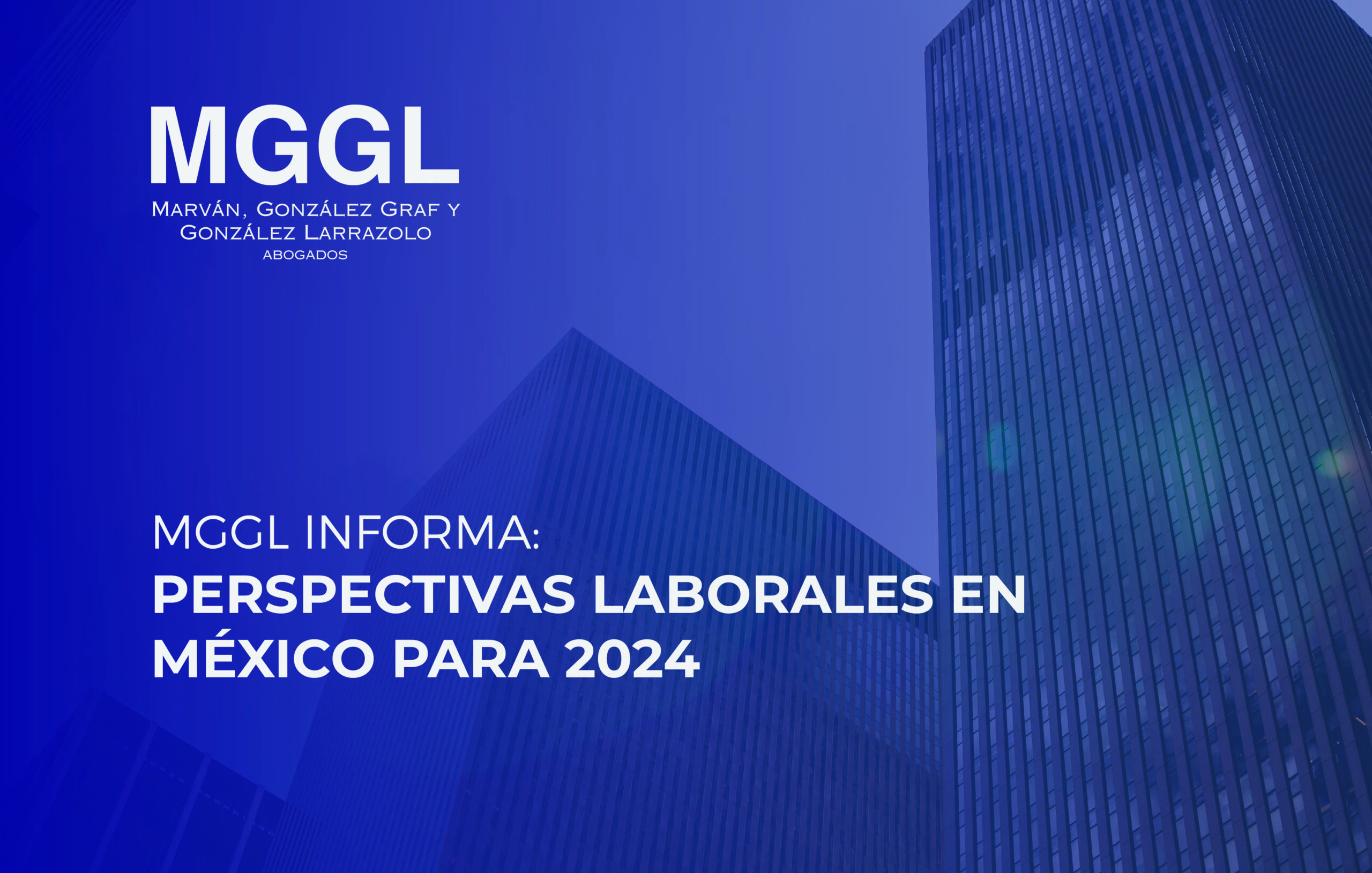The legislative transformation resulting from the TMEC negotiations, the impact of the minimum wage increase, collective bargaining, and the labor legislative agenda for 2024.
The negotiation and ratification of the TMEC represented a paradigm shift in trade relations among Mexico, the United States, and Canada, and in the perception of legal provisions on labor matters within our country.
Throughout the TMEC negotiations, the United States and Canada emphasized that the precarious labor conditions in our country (including low wages and restrictions on collective labor rights inherent to association and collective contracting, amongst others) provided an unfair competitive advantage. This advantage made Mexico a more attractive destination for investment companies focusing on the production of goods and services.
In response, the TMEC introduced a groundbreaking chapter on labor rights, featuring an unprecedented monitoring and sanctioning mechanism: the Labor Rapid Response Mechanism (LRRM). This mechanism, a dispute resolution procedure of the TMEC, allows measures to be taken against specific companies that fail to comply with national laws on freedom of association and collective bargaining. It is considered the "most complete and binding" set of labor rules implemented in this trade zone.
Chapter 23 and Annex 23 A of the TMEC stem from observations made by our trading partners regarding our country's public labor policies, particularly in the collective, jurisdictional, and wage areas.
As a result of the new labor framework in the TMEC and subsequent governmental ideological changes, the increase in the minimum wage in our country became a key factor in our national public and social policy, with objectives: (i) to restore the purchasing power of workers and (ii) to create equitable conditions among North American countries as recipients of investors.
Consequently, we have witnessed public policies, discussions and agreements between the business and labor sectors, aiming to implement wage recovery measures that translate into a better quality of life in our country.
It has been almost 6 years since the commencement of the TMEC negotiations, and on this occasion, CONASAMI has agreed that the minimum wage for 2024 will be $248.93. This figure, compared to the 2018 minimum wage of $88.36, represents a substantial real increase of 281% and it serves as evidence of the success of the wage and social policies implemented since the beginning of the negotiations. It’s noteworthy that at the start of the TMEC negotiations in 2018, the minimum wage in our country stood at $88.36, making it one of the lowest in Latin America, surpassing only the minimum wages in Cuba and Venezuela.
Conversely, in 2020, when the minimum wage was $123.21, Mexico ranked 16th in minimum wages in Latin America. It wasn’t until 2023, when the minimum wage reached $207.45, that our minimum wage surpassed the average minimum wage in Latin American countries.
As of 2018, the minimum wage has increased as follows:

Based on the above, we draw the following conclusions:
- The minimum wage for the General Zone in 2024 is 2.81 times higher than in 2018.
- The minimum wage for the Northern Border Free Zone is 4.24 times higher than in 2018.
- From 2022 to 2024, both the general minimum wage and that for the Northern Border Free Zone have experienced sustained real increases equal to or greater than 20% per year.
In this context, with the annual increase in our country’s minimum wage by 20% by 2024, Mexico stands out in Latin America for presenting the highest increase in the zone. At the end of 2023, Brazil reported a 6.97% increase in its minimum wage, Colombia 12%, Costa Rica 1.83%, Ecuador 2.07%, Guatemala 3.06%, and the Dominican Republic 19.5%, respectively.
Finally, consolidating the monthly minimum wage at $7,468.00, or its equivalent in 440 USD, Mexico ranks fifth in Latin America in terms of the most competitive minimum wages, only below Costa Rica, Uruguay, Chile and Ecuador. For illustrative purposes, the following graph shows that at the beginning of 2023, our country was in tenth position, and with the last increase decreed, Mexico has regained ground:
| 2019 | 2023 | 2024 |

Main legislative reforms in labor matters in 2023
After years of legislative inactivity in the labor field, driven by the Constitutional reform of 2017, the legal reform of 2019, and a result of the TMEC negotiations, significant modifications have been observed in the Federal Labor Law ("LFT") and various related ordinances. In the course of 2023, the following events stand out:
Effective January 1, 2023, the amendment to Articles 76 and 78 of the LFT, concerning vacations, as published in the Official Gazette of the Federation ("DOF") on December 27, 2022.
April 30, 2023, marked the deadline for the registration of processes to legitimize the Collective Bargaining Agreements ("CCTs"). Consequently, all CCTs not been registered for legitimization on the platform of the Federal Center for Labor Conciliation and Registration ("CCRL"), were terminated on that date.
An extension until July 31, 2023, was granted solely for the processing of the consultations (voting). By the end of this term for unions to legitimize collective bargaining agreements, only a portion of the estimated total were legitimized, resulting in the "disappearance" of the majority of the active agreements.
According to information from the CCRL, the legitimization process for collective bargaining agreements in 2023 concluded with the following results:
- 30,526 legitimized collective bargaining agreements.
- 663 not approved by the workers.
- Out of an estimated universe of 139,000, about 80% of the collective bargaining agreements concluded without undergoing the legitimization process.
- More than 7.2 million workers participated in the legitimization processes.
Furthermore, by the end of 2023, 13,230 wage revision agreements were registered; 7,073 contractual revision agreements were recorded, along with 751 initial CCTs, and 13,771 Internal Labor Regulations were satisfactorily registered.
The aforementioned marks the end of a practice where conditions of CCTs were negotiated between unions and companies without genuine worker participation. Now, active union involvement ensures workers’ rights to freely elect their representatives, and to be informed and validate their collective bargaining agreements in support of freedom of association and collective bargaining.
On June 8, 2023, NOM-037-STPS-2023 was published, establishing health and safety conditions in the workplace for employees engaged in telework. This NOM came into effect on December 5, 2023.
October 2023 marked the first anniversary of the implementation of the third and final stage of the new labor justice administration model, overseen by the Labor Conciliation Centers and Labor Courts of the Judicial Branch. This last stage impacted major cities across the country, including Mexico City, Monterrey and Guadalajara.
On November 29, 2023, the reform to Articles 251 of the Social Security Law and 146 of the LFT was published. This reform allows workers who have voluntarily enrolled in the mandatory regime of the Social Security Law to make contributions to the National Housing Fund, enabling them to obtain affordable and sufficient loans. The reform became effective on January 1, 2024.
After 52 years without any change, on December 4, 2023, the modification of the table of diseases referred to in article 513 of the LFT was published in the DOF. The revision includes 88 new labor ailments, increasing the recognized diseases from 161 to 194. Notable additions include:

In 2023, the U.S. Government increased the presentation of labor complaints against our country for alleged violations of freedom of association and collective bargaining rights. This year saw the highest number of complaints received, showing an evolution since the MLRR came into force. Since then, 17 complaints have been presented against our country, with 12 filed in 2023.
Legislative expectations for 2024
Looking ahead to the coming year, we anticipate the discussion of several legislative projects focusing on labor and social security matters. These initiatives will aim to: (i) consolidate labor regulations in alignment with conventional and international standards, and (ii) promote a favorable political and social scenario in anticipation of the upcoming electoral processes.
The main reforms that may be discussed in the coming year include:
- Reduction of the maximum working day from 48 to 40 hours per week.
- Increase in Christmas bonus days by up to 40 days.
- Hiring of senior citizens, requiring companies with at least 20 employees to have at least 5% of their staff composed of workers over 60 years of age.
- Regulation of the right to disconnection, not limited to telework, granting employees the right not to answer work-related messages outside their working hours.
- Increase of the vacation bonus from 25% to 50% of the corresponding salaries during the vacation period.
- Increase in the seniority bonus, raising it from 12 to 15 das of salary for each year worked and reducing the minimum period of service to access such benefit from 15 to 13 years.
- Regulation of the activities of individuals working in digital platforms.
- Penalization of discriminatory acts or omissions against women due to pregnancy, violating their rights to equality, maternity, pregnancy or breastfeeding.
- Extension of paternity leave for up to 30 days.
We believe that the legislative activity in labor matters will continue to evolve constantly in response to the changes occurring in our society, particularly driven by the international commitments that the country has adopted.



